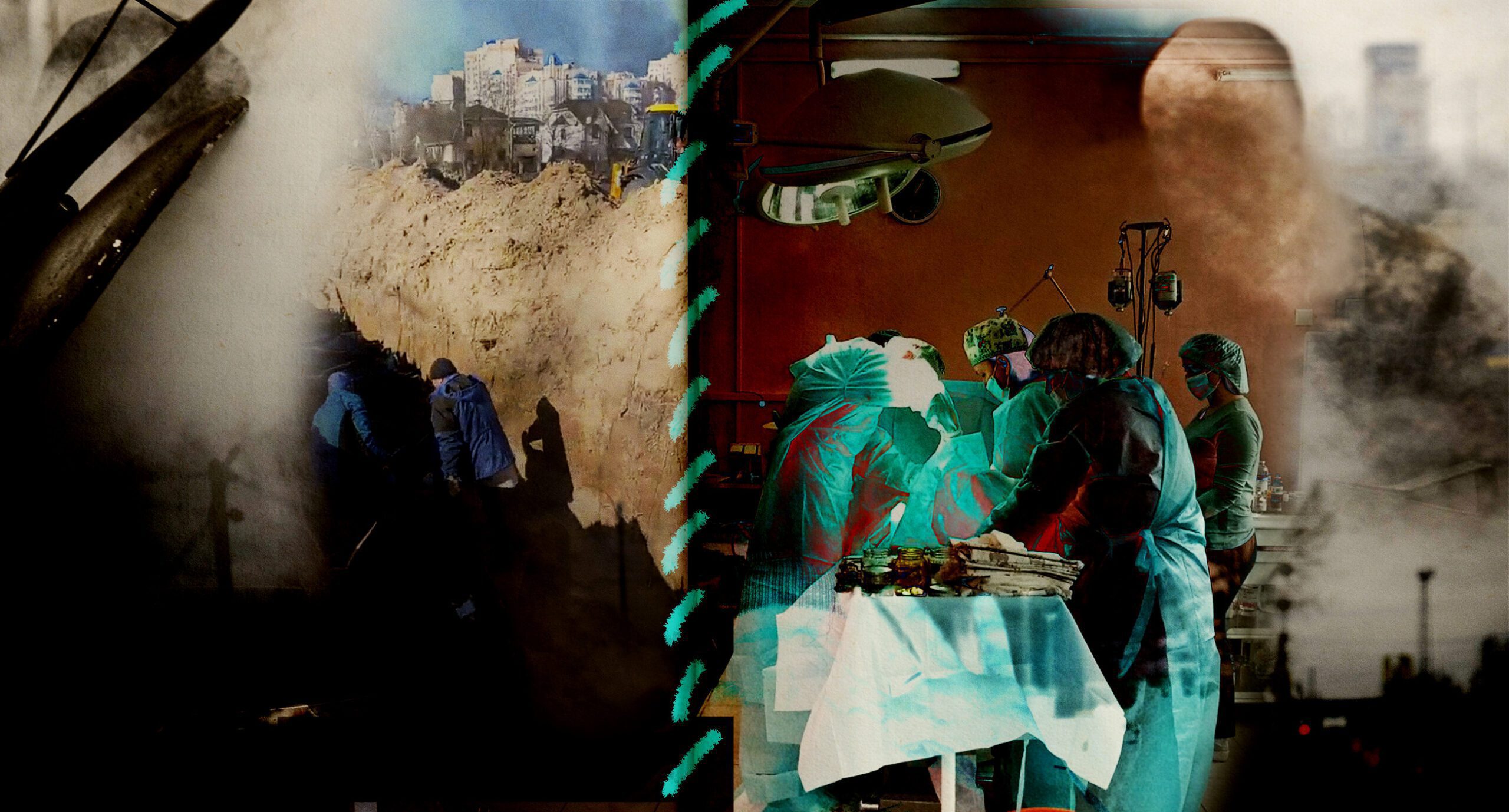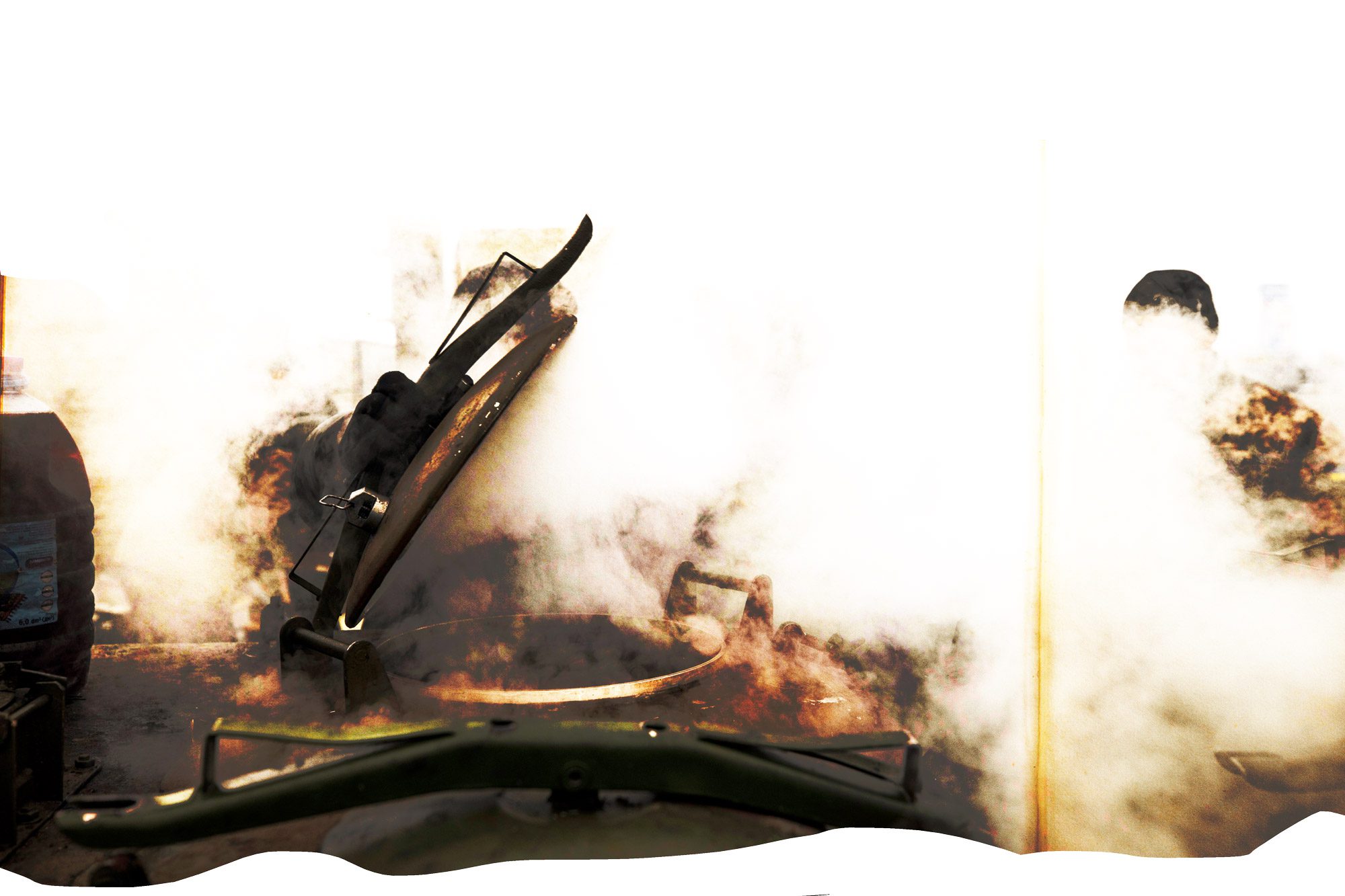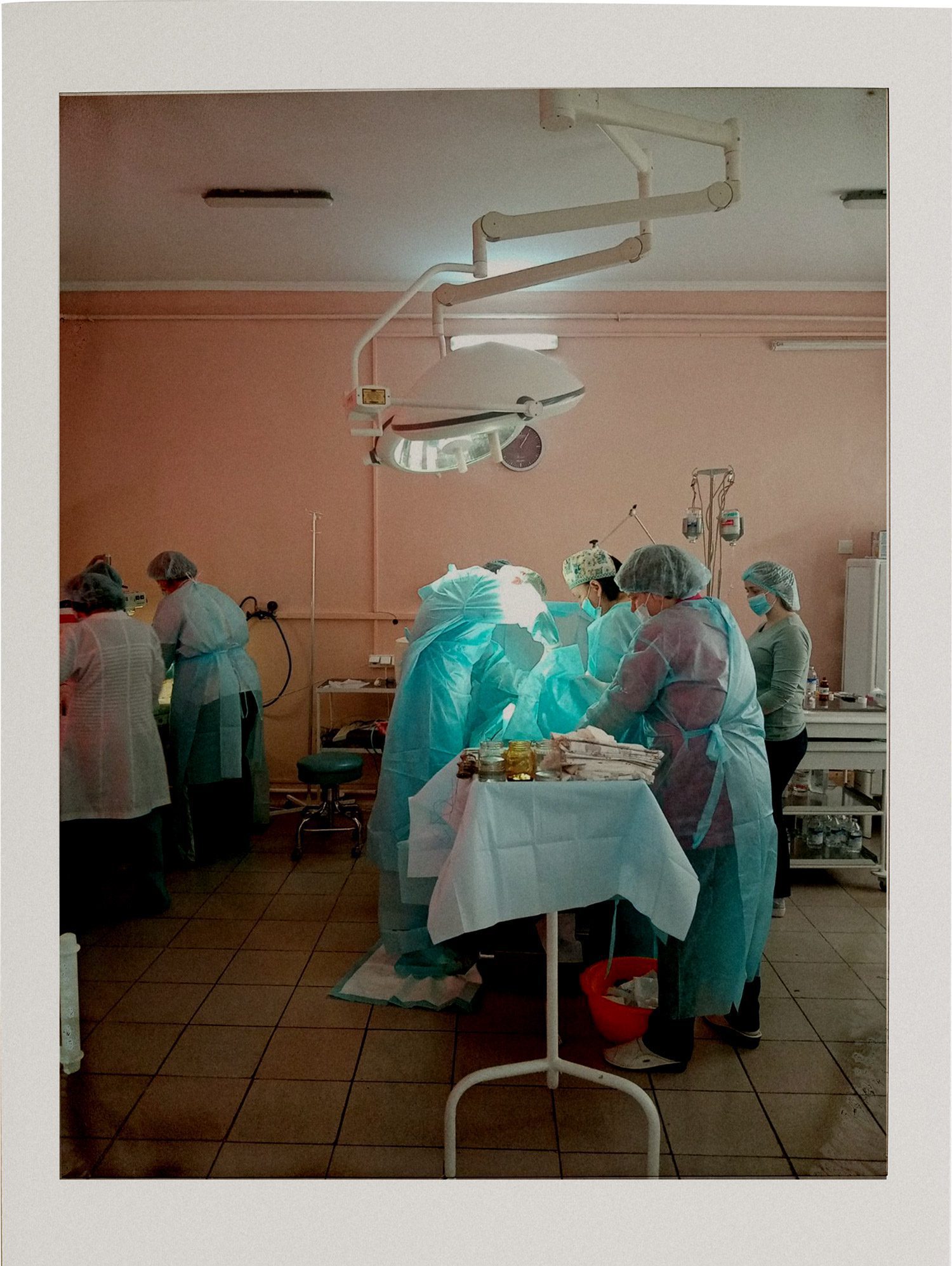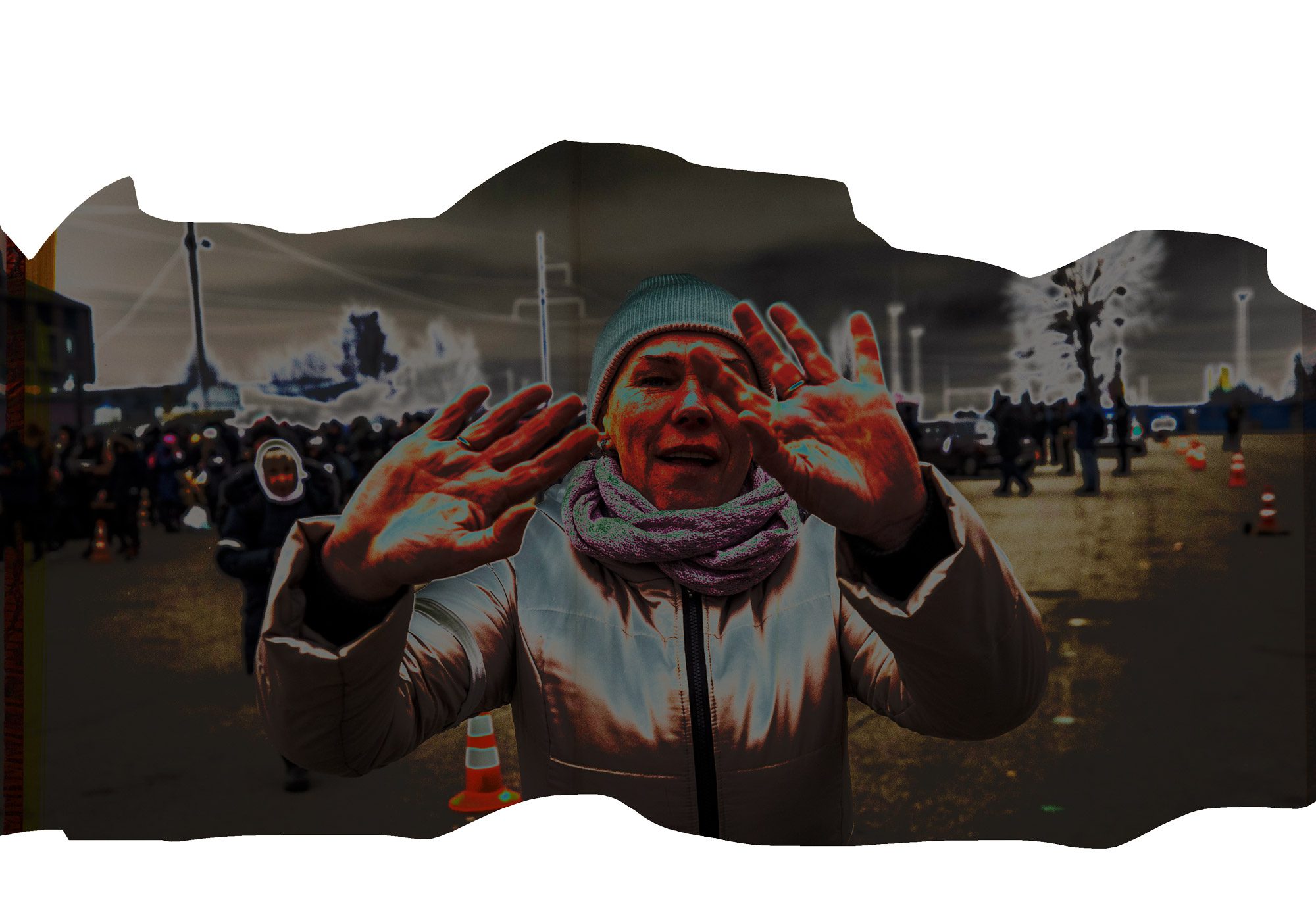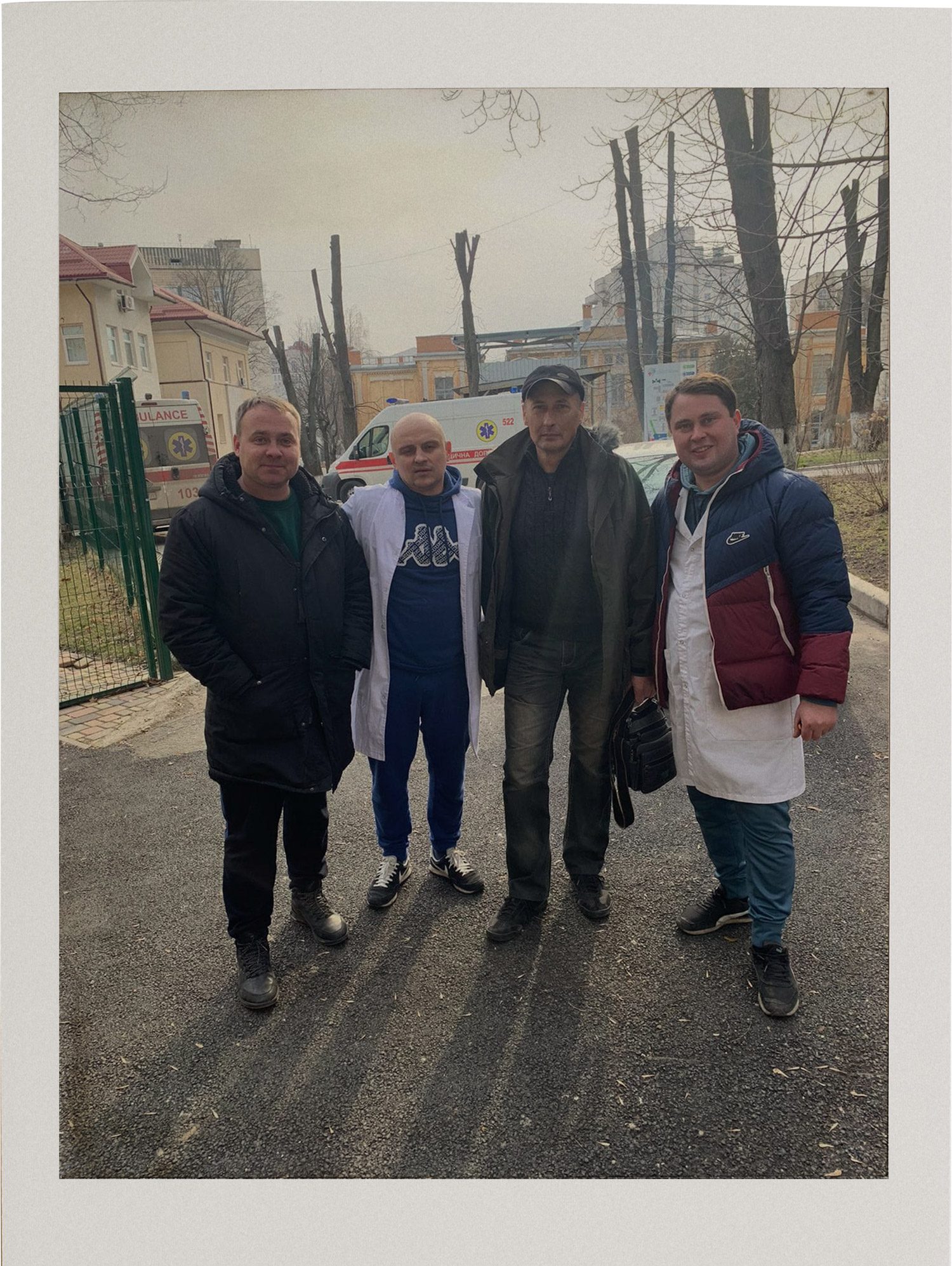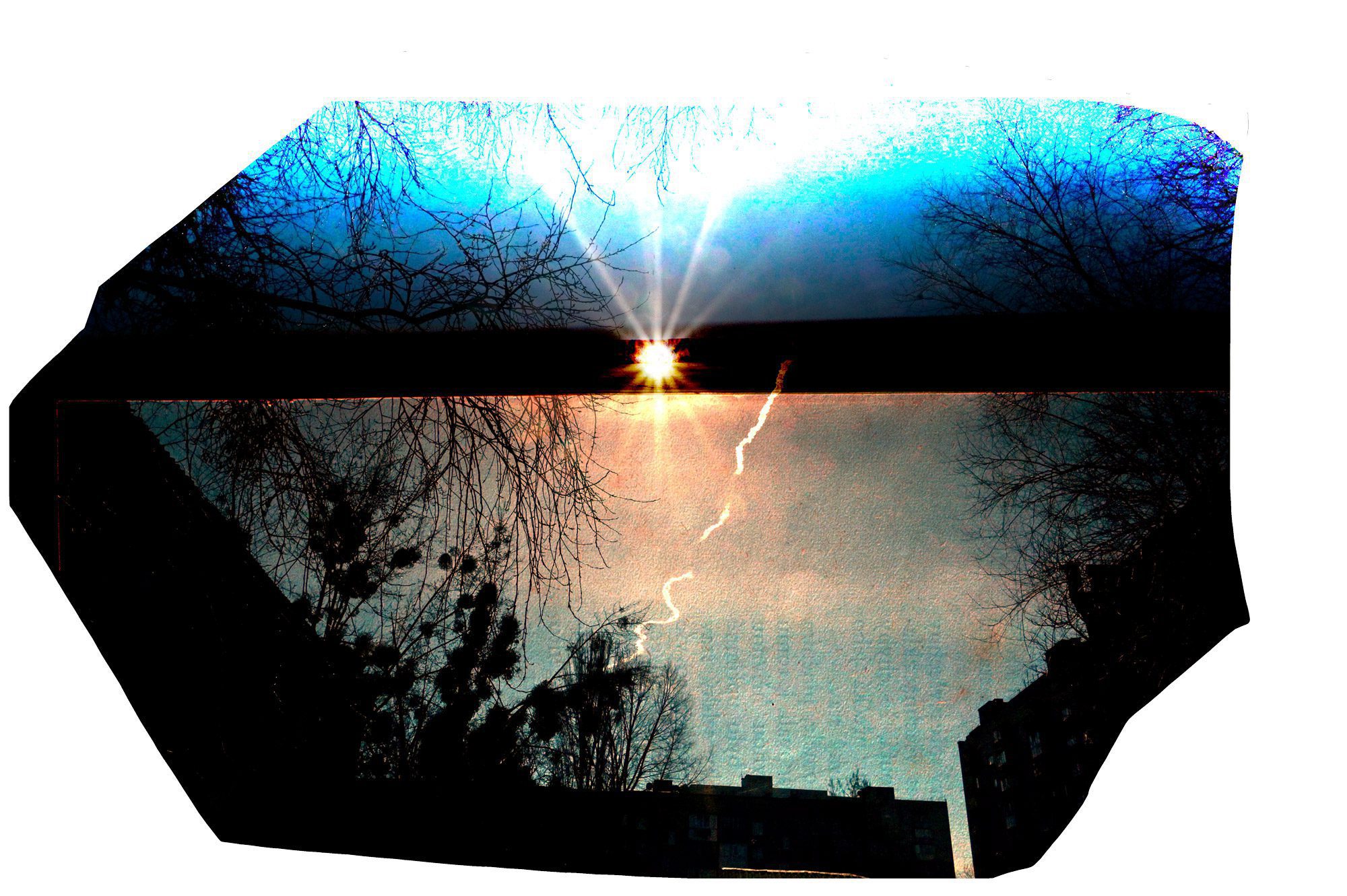Without water, heating and electricity in the city, the chief doctor of the Irpen hospital, together with his colleagues, rescued civilians and soldiers with severe wounds for more than two weeks. The medics saw death and birth during the incessant cannonade, and a Russian captive asked them for a pill that would bring him home. When the enemy offered the chief doctor cooperation, he and his team gathered documents and equipment worth ten million and evacuated from Bucha. A column of 200 civilian vehicles followed them. Journalist Nadiya Shvadchak reconstructs the course of events specially for Zaborona with the help of stories by the chief doctor Anton Dovgopol and other medics from the Irpen hospital in Bucha and Vorzel.
Anton Dovgopol, the chief doctor of the Irpen hospital (it has departments in Irpen, Vorzel and Bucha)
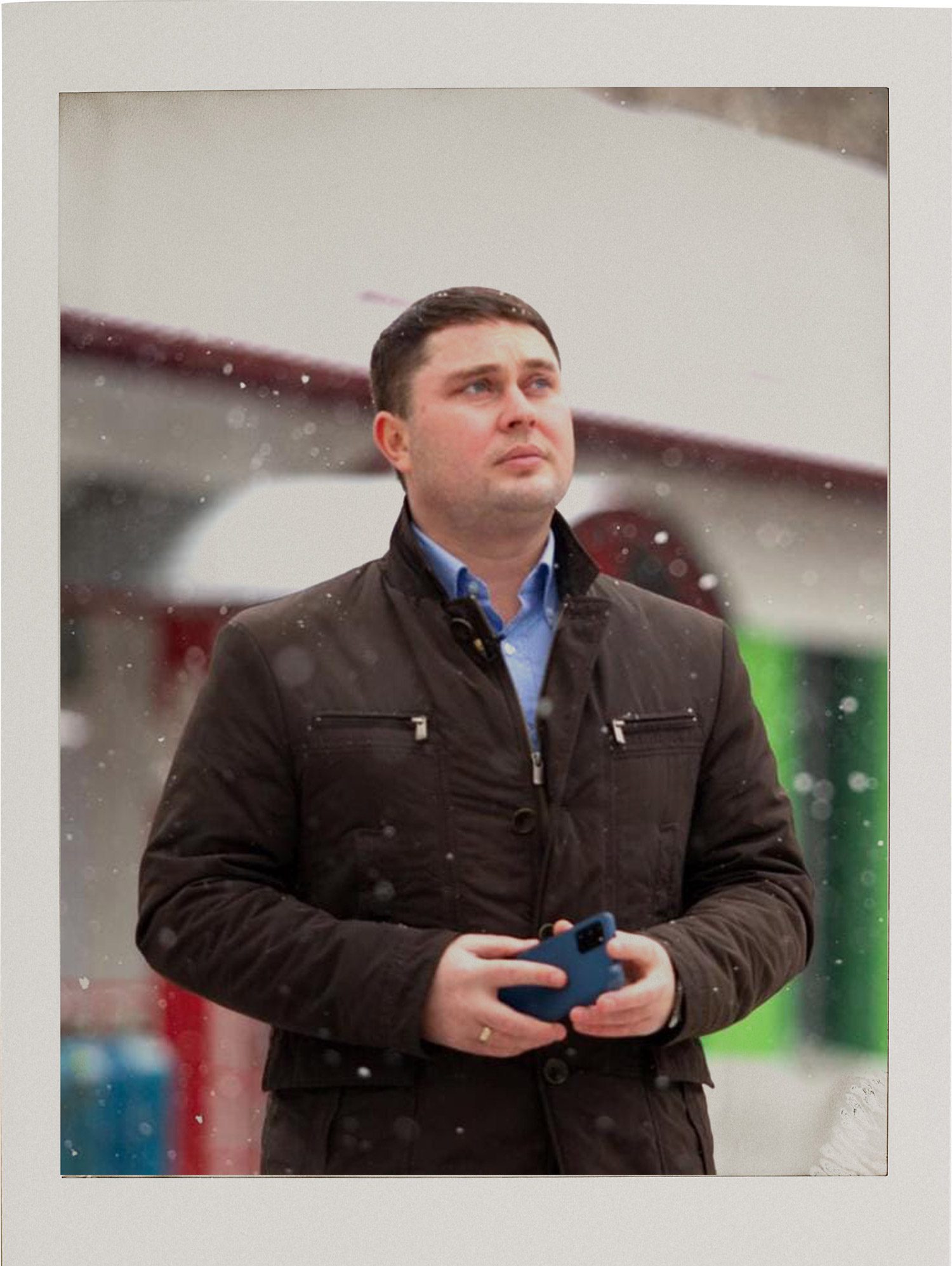
February 24. I drive to the Bucha hospital and take it under my command. At the time of my arrival, there are 70 medical workers there. When it becomes clear that the director is here, the number of staff increases to 150.
Under shelling, we bring water supplies and generators to Bucha and Vorzel. The first wounded come in: firemen and random bombing victims.
We’d probably be cut off from supplies, so we start stockpiling food and medicine. We make arrangements with the gymnasium — the school cooks start cooking for us.
We deliver blood reserves to the hospital through the police.
Larisa Alekseevna, the head nurse
We are all anxious to get our children out.
Former employees, those who have not worked here for several years, join us. They work 24 hours a day, without leaving the hospital.
Anton Dovgopol, the chief doctor
The wounded arrive again. The military hospital has a problem with blood supply. I say: no problem, come and take it.
We do not know when the Russians will come, so the data on our soldiers is encrypted in a separate journal.
We need equipment to supply ourselves with blood. Together with my ambulance driver, we make a sortie to Kiev. We take food and blood supplies. Bucha is under shelling, it’s not safe to deliver food from the gymnasium anymore. We set up a field kitchen.

Photo: Emin Sansar/Anadolu Agency via Getty Images
Larisa Alekseevna, the head nurse
We start cooking early in the morning, around six o’clock, before the shelling begins. The kitchen is a relatively safe place between the main and infectious diseases departments.
Locals are waiting in queues to donate blood.
Anton Dovgopol, the chief doctor
We send 18 Ukrainian soldiers to the military hospital in Irpen. Shells are flying, heavy artillery is firing. The emergency substation does not have a basement, so they are moving in with us.
The power and water disappear, the sewage does not work. They’re being repaired. I make another sortie to Kiev — for groceries.
We have about 110 patients (50 of them have covid, they need oxygen). The hospital’s capacity is 270 beds.
Larisa Alekseevna, the head nurse
We get lost in the dates. We can get exhausted for a couple of hours and close our eyes, and then there is another explosion, another shooting. The patients sleep in their beds, the staff sleep anywhere: on a mattress or a sofa or a chair. You rest and then you work, work, work. Many of us do not know where our relatives are, or whether they are alive. But we don’t think about that. All of us are needed here and now.
It’s not just the soldiers that come into the hospital, but whole families and children. It’s hard to bear.
Vladislav Gorbovets, vascular surgeon
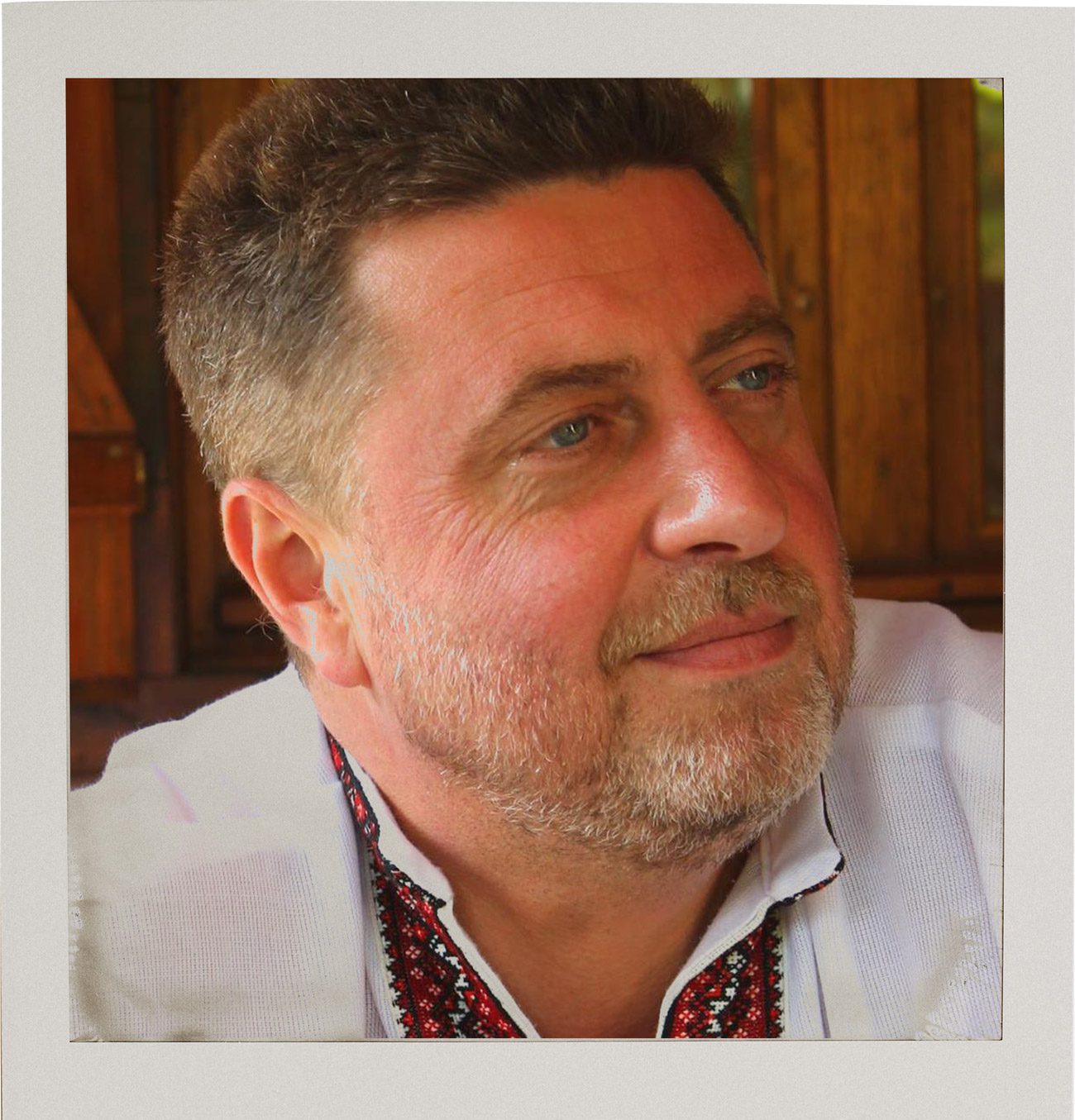
People live in the corridors and basements of the hospital. Some people come to get help and can’t go back home, because there is no more home.
I came to Bucha because there is no vascular surgeon here — it made sense to come. The problem is that with vascular injuries, the wounded just don’t get to us in time because civilian vehicles get shot at. Patients with vascular injuries are brought in two to four days later. And these are gangrenous limbs already — two children had them, among others.
The trauma department is full to the brim.
Doctors work and live in the hospital.
Inna Schogoleva, the chief doctor of the maternity hospital (Vorzel)
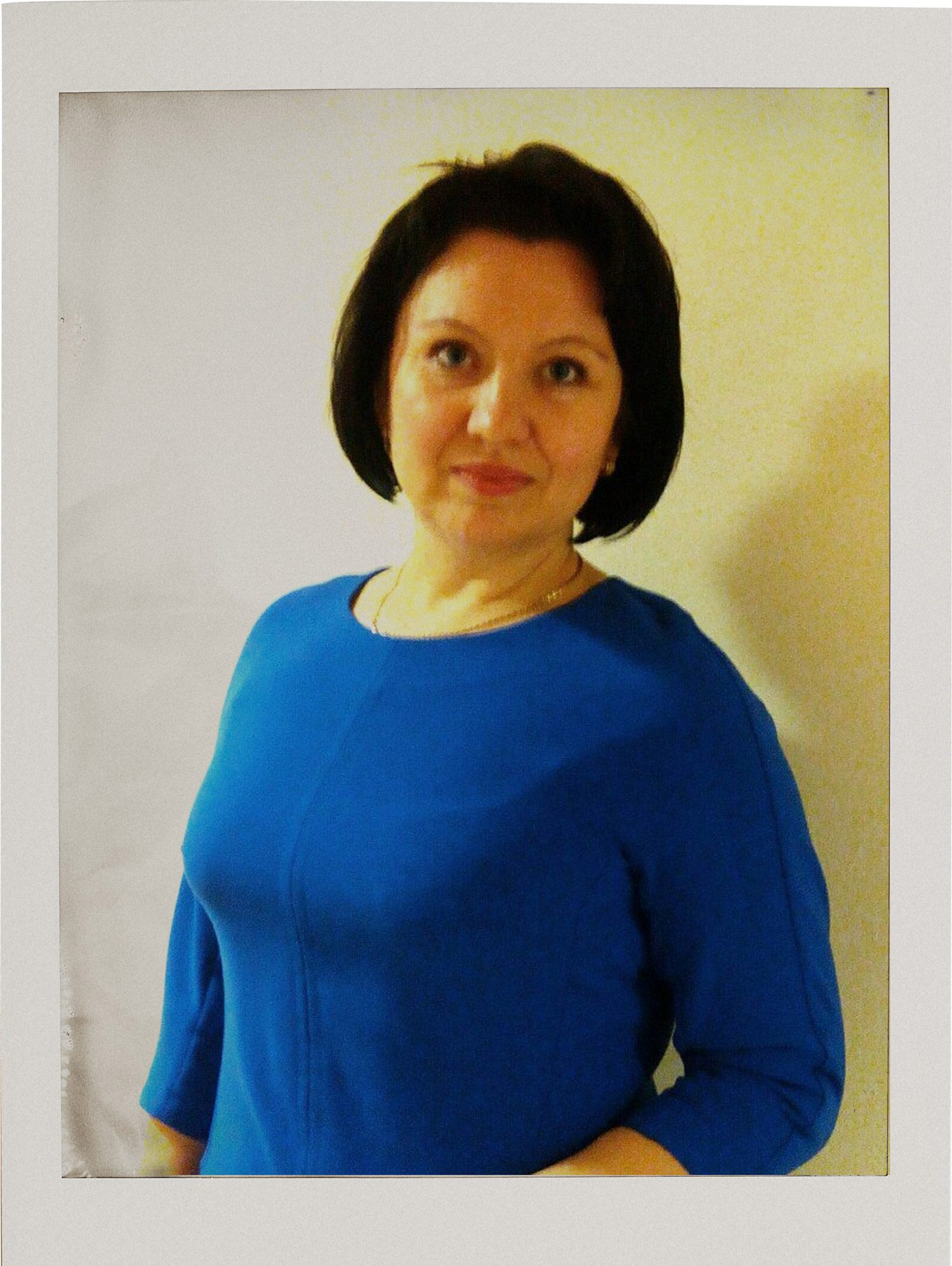
We put on our bullet-proof vests and go to the operating room. There are five windows there. Can you imagine? The windows are taped. Tanks are coming, their muzzles revolving. We just operated on the victim, he is still on the operating table, and we are all lying on the floor. A woman gives birth in the corridor. It’s scary in the delivery room, because everything is under glass.
Orcs stand on the streets outside the hospital and fire from morning till night. We all sleep in the corridor on mattresses. And women with newborns, of course.
We watch TV: we hear something about Gostomel, Bucha and Irpen. Nothing about us. I think, God, nobody knows about us.

March 4, Vorzel. Cesarean section during the bombing. Photo courtesy of Inna Shchogoleva
Anton Dovgopol, the chief doctor
Russian troops are passing by the hospital. They are in Bucha. We have four of their soldiers. One dies. Three are taken to Kiev. They give a press conference.
Mykola Krestyanov, surgeon
One of their soldiers asked me if I had a pill, so he could take it and be home at once.
He didn’t know what he was doing here.
The cannonade does not subside. Doctors work to the sound of explosions, the ceiling is shaking. Our basement is small, it won’t help. The windows are taped, we work in the operating rooms. There are times when six or seven are used at once.
Life danger is the last thing I think about. There’s nothing to be afraid of. Who should be hanged won’t be shot. To have a happy life, we must get through this ordeal. There is no other way. Mordor won’t let us go.
Anton Dovgopol, the chief doctor
They came to us. They’re looking for the military, the territorial defense, the police. I tell them everyone’s been evacuated. They identify personnel. They check the data. They leave.
There’s a catastrophe in Bucha. People are fleeing. They are being shot at. There are many wounded and killed on the streets. Nobody is buried because there are snipers near the cemetery. The conditions are unbearable. There is no power, we work on generators. There is no water.
We go to the fire station. There is a Russian checkpoint. We are wearing white coats.
I think about my children: who will feed them? And my wife, where will she go? And all the people in the hospital — they won’t have water.
“What do you need here?”
“We have no water. I know there are fire trucks here filled with water. Can we have them?”
They allow it. I can’t get the old vehicle started. I get more luck with another one. I learn how to drive a KRAZ truck. I deliver 5 tons of water.
The sewage system doesn’t work. We are building two outdoor toilets in the hospital yard. People hiding in basements, medical workers, volunteers — they take hammers, planks, nails and shovels.
We disinfect tools for operations using the World War II field method.

Photo: Emin Sansar/Anadolu Agency via Getty Images
Inna Komissarova, gynecologist
There are Russian tanks in Bucha. A pregnant woman comes to us from a basement. She has a planned С-section. We put her in a separate room.
Nikolai Krestyanov, surgeon
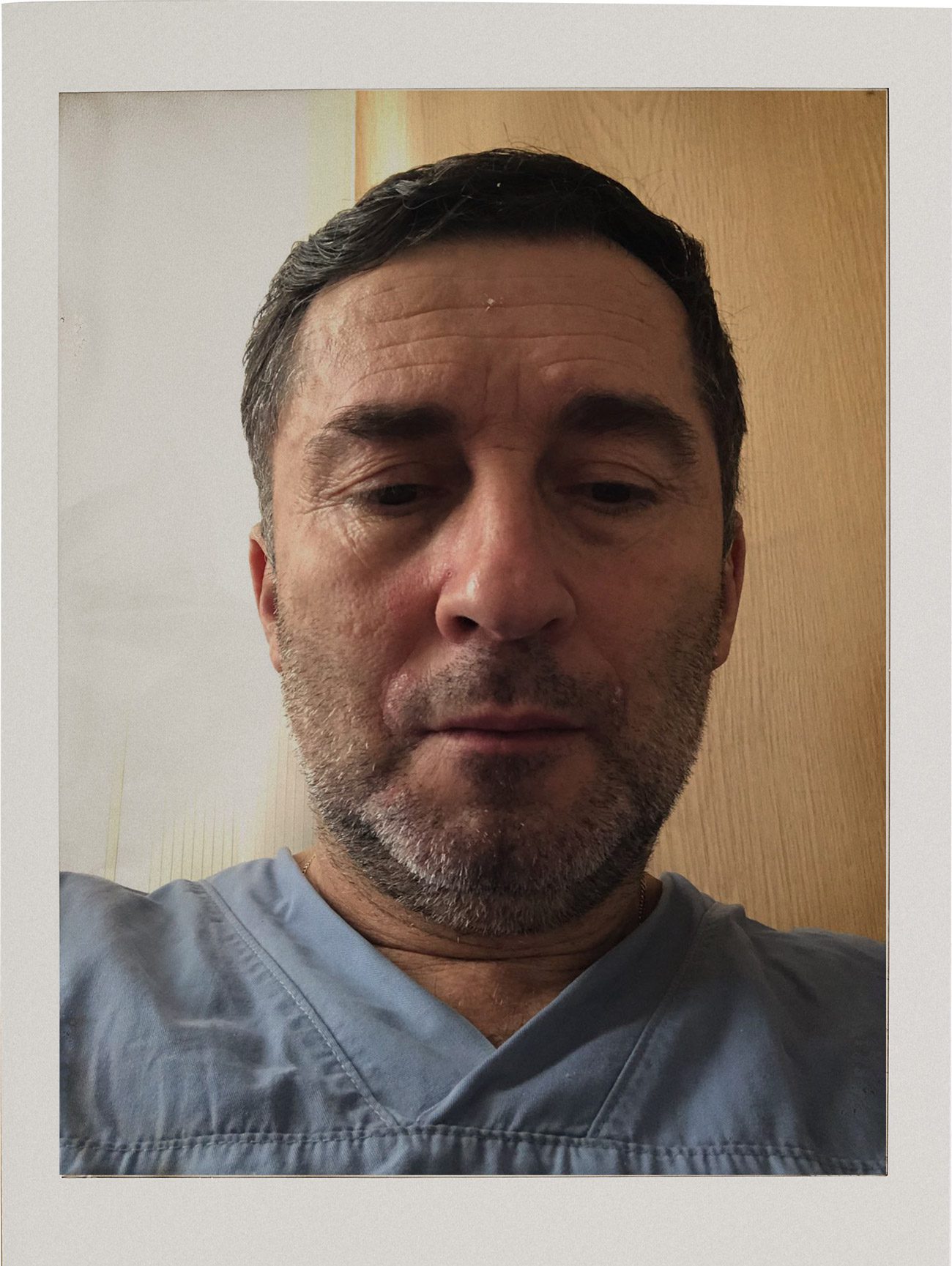
We can’t take her to the maternity hospital in Vorzel, because there are enemy checkpoints. We do a C-section. This is the first time for me. A boy is born — Zhenya. He screams well. There is death and there is life.
Life goes on.
Anton Dovgopol, the chief doctor
The maternity hospital reports that they are running out of food. I load the ambulance and go. At the turn to Vorzel, two muzzles aim at us. We roll with our hands raised. They let us through.

Doctors of the Irpen hospital. Photo courtesy of Anton Dovgopol
Inna Schogoleva, the chief doctor of the maternity hospital (Vorzel)
I see two tanks coming. And our hospital ambulance is behind them. Anton Mykhaylovych. He is trembling. Orcs with submachine guns are all over the maternity hospital.
Anton says to unload quickly. I whisper: “Will you take the wounded?” “As many as I can fit”, he answers.
We gave him a girl and two boys. Anton Mykhaylovych texted me later that they had arrived.
And we thought that was it, he wouldn’t make it.
Anton Dovgopol, the chief doctor
I saw shot cars with children, scattered toys, burnt corpses. I saw dogs eating people’s bodies. We collected the bodies of those who died in the hospital and those brought to the pathological anatomy department. We tried to identify them, dug a mass grave. We buried 67 bodies on the church grounds.
It was impossible to keep the hospitals going longer. Around the 14th day, the first green corridors started working — the maternity hospital has been evacuated. In the next two days — the hospital in Bucha.
Some of the team remained, and the Russians came to us again: “The authorities are gone, the city must be rebuilt, we need to cooperate, we will be here tomorrow at 11”. — “Is it possible to leave today, while there is a green corridor?” — “You do that, and there will be problems.”
But I don’t want cooperation, I don’t want my children to live in the Russian world. We have to get out somehow.
We decide to wait until eleven o’clock on the next day and then act according to the circumstances.
The next day, I hear that the corridors from Bucha have been banned. I see two hundred civilian cars waiting in town. I know the road that the Red Cross used the day before to get people out of the hospital.
At 11, the fighting starts. We take the equipment and documents that the Russians haven’t taken yet, get into an ambulance with a Ukrainian flag, and leave for the highway. A column of 200 cars follows us.
On the way, we meet the Irpin firefighters: “Guys, am I leaving right?” And they’ve already changed the route! I ask the fireman: “Jump in the car and show me where to go.”
The fireman gets in and drives the other way.
So we are taking equipment worth ten million dollars, some documents, and a column of 200 civilian cars.
***
Today, the police stopped me: “Why are you here? Why aren’t you fighting?” And I show them: “Here’s my car with the bullet holes in it, here’s a mass grave in the 21st century, and here’s the jacket I wore when I was burying people. You see, I’m wearing it because I have no other clothes.”
I’m going to fight. I’ll settle my family and go back to another hospital.
Three weeks ago, I had everything.
Today, I have nothing.

Photo: SERGEI SUPINSKY/AFP via Getty Images

